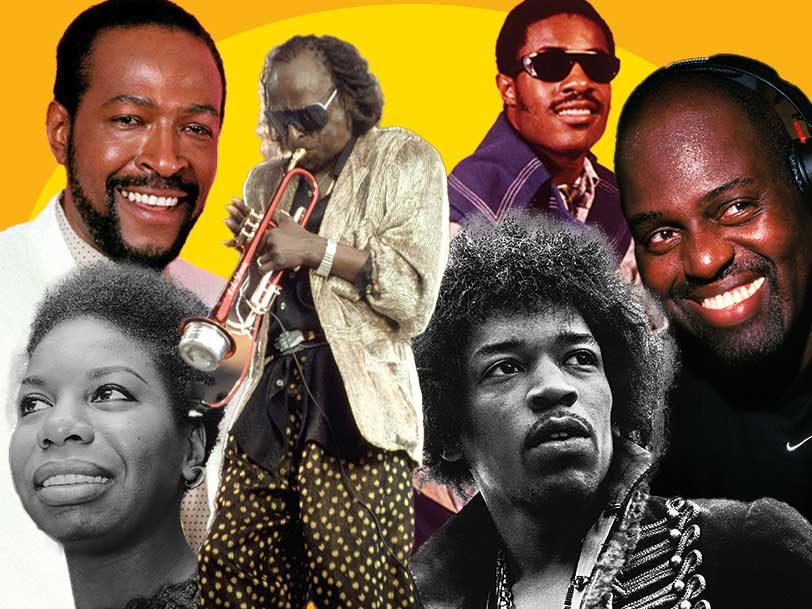The roots of pop, jazz, soul, R&B, hip-hop, gospel, house, folk and disco music can all be traced to Black musicians. So many of today’s most popular genres, trends and artists just wouldn’t exist without the work of the most influential Black musicians of the 20th century, all of whom helped lay the groundwork for music as we know and love it today.
This list of the 30 most influential Black musicians of all time ranges from Aretha Franklin to Prince and Miles Davis, but it is just a small selection of the hundreds of Black artists, singers, musicians and producers who have shaped popular culture.
Listen to our Black History Month playlist here, and check out our list of the most influential Black musicians, below.
30: Frankie Knuckles (1955-2014)
New York City native and Chicago house legend Frankie Knuckles is often referred to as The Godfather Of House Music – a big title, but one that highlights the impact of his career. His production techniques and use of “peaks and valleys” helped influence the EDM scene as well as all subgenres of electronic music while also influencing pop acts such as Michael Jackson and Diana Ross. Knuckles passed away in 2014, but he remains an underappreciated influence not just on electronic music, but also on popular music as we know it today.
Must hear: Frankie Knuckles Presents Your Love




